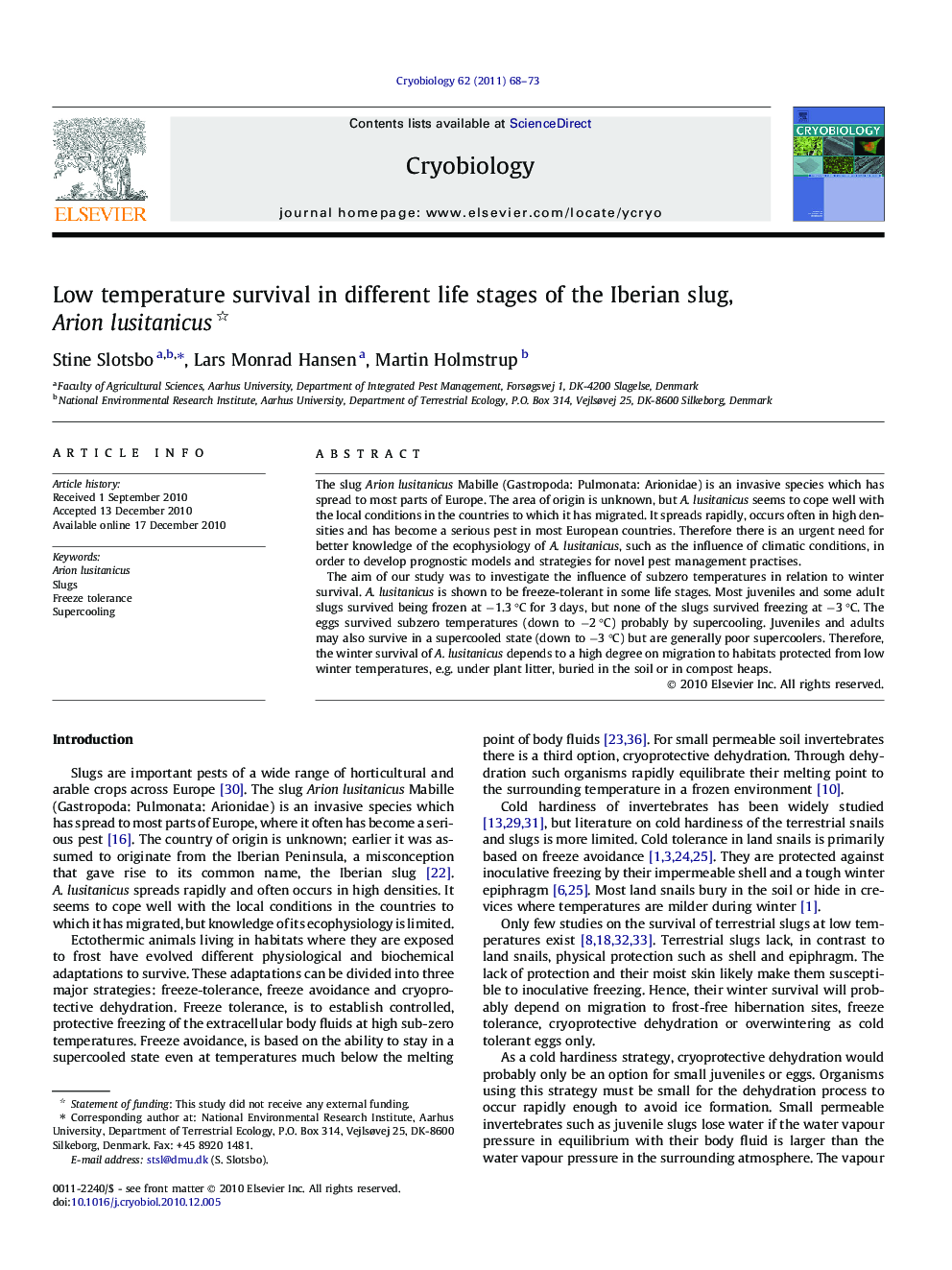| Article ID | Journal | Published Year | Pages | File Type |
|---|---|---|---|---|
| 2168762 | Cryobiology | 2011 | 6 Pages |
The slug Arion lusitanicus Mabille (Gastropoda: Pulmonata: Arionidae) is an invasive species which has spread to most parts of Europe. The area of origin is unknown, but A. lusitanicus seems to cope well with the local conditions in the countries to which it has migrated. It spreads rapidly, occurs often in high densities and has become a serious pest in most European countries. Therefore there is an urgent need for better knowledge of the ecophysiology of A. lusitanicus, such as the influence of climatic conditions, in order to develop prognostic models and strategies for novel pest management practises.The aim of our study was to investigate the influence of subzero temperatures in relation to winter survival. A. lusitanicus is shown to be freeze-tolerant in some life stages. Most juveniles and some adult slugs survived being frozen at −1.3 °C for 3 days, but none of the slugs survived freezing at −3 °C. The eggs survived subzero temperatures (down to −2 °C) probably by supercooling. Juveniles and adults may also survive in a supercooled state (down to −3 °C) but are generally poor supercoolers. Therefore, the winter survival of A. lusitanicus depends to a high degree on migration to habitats protected from low winter temperatures, e.g. under plant litter, buried in the soil or in compost heaps.
